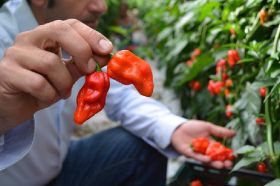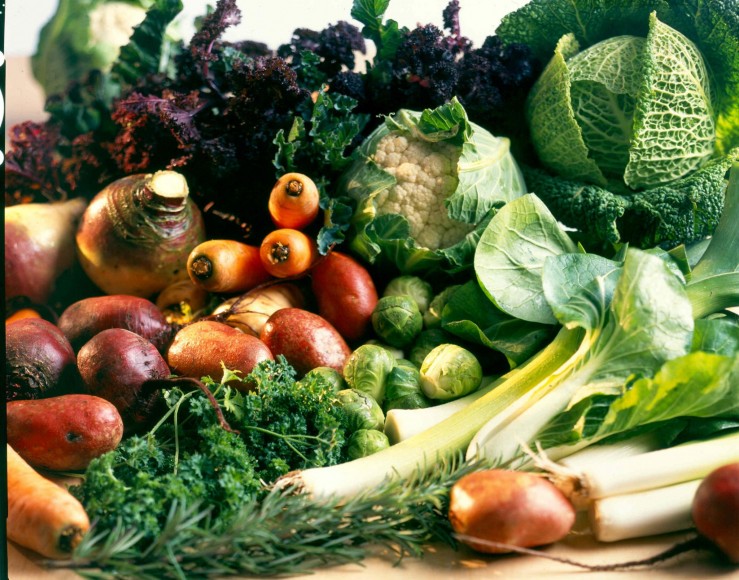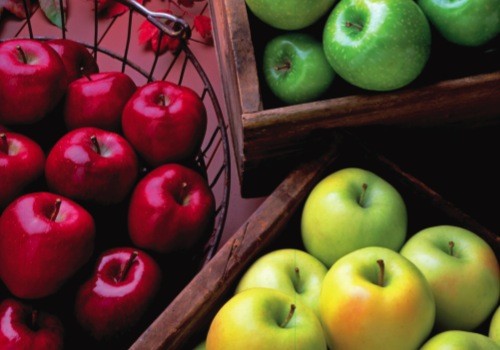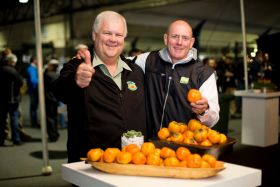Fresh Produce News
Retailer reportedly ready to offload newly-launched convenience chain to investment firm Greybull Capital
Morrisons is set to sell its convenience arm M Local as chief executive David Potts continues his revamp of the struggling supermarket.

The retailer is said to be in “advanced talks” with investment firm Greybull Capital, which has previously rescued budget airline Monarch Airlines, the Telegraph reported.
It is understood that Greybull will provide tens of millions of pounds to fund the takeover and provide the stores with working capital, the paper said.
Morrisons has reportedly received a series of approaches for the convenience stores since earlier this year when it announced it would close 23 of the stores.
The M Local estate consists of over 150, generating between £250m and £350m in sales.
The retailer was later to the convenience market than rival offerings from other top four retailers, and analysts have said this led to it paying far higher rental costs for prime retail spots.
Salvatore Genovese-grown hot chilli measures 1.4 million Scovilles and is available in Tesco stores until November
Tesco has launched what it claims is the “hottest-ever commercially-grown” chilli pepper into stores this week.
The Komodo Dragon chilli – which measures up to 1.4 million Scoville units – is grown for Tesco by the UK’s largest chilli grower, Salvatore Genovese, based in Blunham, Bedfordshire.

In comparison, a jalapeno pepper used in many pizza toppings measures 3,500 Scovilles, while the very hot Scotch Bonnet is rated up to 350,000 Scovilles, Tesco said.
Komodo Dragon chillis are now on sale in 500 stores in 15g packets sold for £1.
“In recent years we’ve had the fearsome Dorset Naga, the searing Bhut Jolokia and the mouth-numbing Trinidad Scorpion,” said Tesco chilli buyer, Eleanor Mansell. “But they all pale in comparison to the UK’s latest commercially-grown chilli pepper – the mighty Komodo Dragon which puts the others in the shade.”
Mansell said the Komodo Dragon is unusual because it has a delayed reaction that “lulls you into a sense of false security”.
“At first you can taste a wonderful hot fruitiness but then after about 10 seconds the full might of this little demon hits you and your whole mouth is aglow,” she said. “This is definitely a chilli pepper for connoisseurs and for those who are experienced in eating really, superhot food.”
Grower Genovese, who started growing chilli peppers about 15 years ago (after he took over his parents’ cucumber business), said hot chillis are the one that create the most interest. “So each year I try and grow one hotter than the last. I have chilli heads, as they’re known, contacting me from all over the world asking for samples,” he said.
“The Komodo Dragon should be livening up meal times over the coming months. I’d seriously advise anyone not experienced in eating really hot chilli peppers to have some milk or yoghurt ready as a standby to douse the flames.”
Genovese grows about one million chillis, or 15 tonnes, each week, on his seven-acre farm. Komodo Dragon chilli peppers will be available in Tesco until November.
New marketing campaign for Tenderstem has had ‘direct impact’ on sales rise of 17 per cent for the year-to-date.
The latest marketing campaign for branded brassica Tenderstem has had a “direct impact” on increased sales, master licensor Coregeo has said.
July sales for Tenderstem were up 31 per cent while year-to-date sales are up 17 per cent so far. The current year-on-year growth for Tenderstem is just under 20 per cent.
A new communications campaign, conducted by London-based PR firm MCG, has centred around Tenderstem as the perfect component of a date night – a concept which has helped “develop the personality of the brand”.

Michelle Toft, chief marketing officer for Coregeo, told FPJ that the latest Kantar results show Tenderstem is the fourth-largest brand within the produce market, showing that the marketing strategy is “making cut through”.
“This year we’ve seen a successful integrated communications campaign launch across PR, experiential, digital and social platforms,” she said. “Date Night has helped develop the personality of the brand while educating consumers on how to eat and cook the product.”
Versatility has been a key message for Tenderstem this year, and Toft said the PR campaign for summer will build on this by promoting the different ways you can eat Tenderstem raw. Educating consumers on versatility and product usage is key to making it an essential part of a weekly shop, Toft said.
“Our new website and recipe catalogue also reflects the breadth of world cuisine meals Tenderstem can be easily added to, from Indian to Italian to South American,” she added.
“Our 2015 marketing campaign, from advertising to PR has enabled us to communicate the versatility of Tenderstem and this is having a direct impact on sales, with July sales up 31 per cent and YTD sales up 17 per cent.
“In the past Tenderstem has been seen as a side dish or an ingredient to be used in a stir fry, but through our communication we’ve been able to inspire people to use Tenderstem in different ways and different cuisines.”
Organic chief blasts EU proposals.
EBF vice president Peter Rolker says proposed changes to EU law would have “severe consequences”
New proposals for EU organic legislation have been slammed by a senior figure in the European organics industry as “a backward step” that would have “severe consequences” for the sector.

The European Commission has been consulting on changes to regulation 834/2007, which covers the production and labelling of organic produce, and favours putting more emphasis on consumer issues and less on the environment and sustainability.
However Peter Rolker, a vice president of the European bio/organic fruit forum EBF, told delegates at Prognosfruit this week that the proposals would “create a lot of uncertainty because of their complexity”, “endanger peaceful co-existence [among farmers] in fruit-growing regions”, would not solve the problems of criminal fraud in organics and would be “a backward step”.
Rolker urged the EC to take more time to consult with stakeholders before bringing in any changes, and poured cold water on the suggestion that the revision could come as soon as late 2015 or early 2016.
A critical point up for discussion, he said, is the issue of separate maximum residue levels (MRLs) for farms in intensive growing regions, where organic growers may be tainted by pesticide drift from conventional farms. Some commentators have called for an insurance fund to protect organic growers if they fail MRL tests as a result of drift.
Other issues include proposed changes to the inspection regime to put more of the focus on the finished product and national exceptions to production conditions.
Rolker wants to see residue-free become “almost market standard” and traceability back to farm modernised and better supervised by the EU authorities.
Production increases
His comments come at a time when the European organic top-fruit industry is on the up. A new production record for organic apples was set in 2014, when 25 per cent more fruit was grown in the EU than in the previous year.
Rolker’s fellow EBF vice president, Gerhard Eberhofer, told Prognosfruit delegates that now is the time for the trade to look for new markets beyond the traditional destinations of the EU and North America, which could include Israel and the UAE.
He added that the message to consumers should be all about freshness and taste at point of sale rather than the more ambiguous element of being ‘genuine’, and called for the creation of new umbrella branding to cover organic produce.

Washington apple producers expect to see a decline in reds but huge growth in newer varieties in future.
Assessing the state’s varietal mix at Prognosfruit in Italy this week, Washington Apple Commission’s Todd Fryhofer said that production declines had been noted in Red Delicious, McIntosh, Idared and Golden Delicious – that latter which he described as “the number-one variety being taken out of plating today.”
Fuji and Granny Smith production is flat, while Gala is on the rise, but the real growth areas are Honeycrisp and Cripps Pink.
Fryhofer predicted that “soaring” Honeycrisp production would see it become the state’s number-three apple.
Interestingly, many growers are switching to organic production when replanting with new varieties, with organic production in Washington set to almost double and rise from 9 million boxes to 15m this year.
“The US apple industry is going through a renaissance, with growers putting in newer, better-tasting varieties,” Fryhofer said.
Shippers, who have had to deal with a tough year in which a record crop coincided with the Russian ban and a six-month port strike that Fryhofer said cost $100m, are also looking for new markets on crops where there is an overdependence on a single customer.
Some 77 per cent of the state’s Fuji exports go to Taiwan, while 79 per cent of Goldens are sold to Mexico. “We need to diversify or we could end up with some problems,” he stressed.
There is also a plan to increase Red Delicious exports from 48 per cent currently to 65 per cent, and to almost double Gala exports from the current 8.8m bushels to 15m in the next five years.
This will all happen at a time of consolidation in the Washington top-fruit sector, with Fryhofer predicting that smaller growers or those who do not invest in orchards, infrastructure or the correct varietal mix will drop out in the coming years.
Sweetcorn might be synonymous with one ‘giant’ of a brand, but is it a product that has a very good
Jon Barfoot (JB): Barfoots is the largest grower and processor of sweetcorn in the UK market with strong sales in retail, foodservice and the wholesale markets.
How much of the UK market do you supply?
JB: We supply around 80 per cent of the UK market throughout the year with peak volumes during the UK season.
What are UK self-sufficiency levels like on sweetcorn?
JB: During the UK season we offer 100 per cent of demand in British-grown crop. Our wider farming business ensures a healthy crop rotation with legumes in particular.
What are the big talking points in the world of sweetcorn?
JB: The market is in huge growth with volumes up over 30 per cent year-on-year. This means big movements in supply chains to make sure that this can be delivered 52 weeks seamlessly.
What is supply and demand like?
JB: The majority of our own supply is grown on our own farms in the UK and Senegal, and this makes our supply very consistent with both high quality and volumes.
Any growing or weather issues?
JB: The growing conditions have been a good start for the crops, with a good spring allowing us to get onto the fields early. The growing weather to date has been strong and our location allows for high levels of sunshine which sweetcorn needs. We expect a strong season this year.
What are prices like in the sweetcorn market?
JB: We have seen price deflation in the sweetcorn retail market, and sales volumes are up 30 per cent, driven through stronger price activity. Sweetcorn is a product that people pick up as a treat. It isn’t like traditional veg, which is either in the basket or not. Sweetcorn is something people buy as an exciting addition to a meal.
What innovations are you currently working on?
JB: We have a lot of varietal work going on, looking for the next opportunity in both flavour and appearance. This ranges from different colours to superior sugar levels.
How are you targeting the next generation of consumers?
JB: We commission regular direct consumer research to tell us what the consumers are looking for, and we then go out of our way to deliver this. The success of restaurant chain Nando’s sweetcorn tells us that the next generation love sweetcorn, and that it is on trend with social eating and a healthy, natural lifestyle.
What do you predict will be the biggest change in the category over the next few years?
JB: Sales volumes are ever-increasing, and we expect to see this continue over the next few years as more and more consumers enter into the sweetcorn category. Sweetcorn has the ability to transcend a traditional British mealtime and deliver something that the whole family loves to enjoy.
The country has doubled its shipments to the US and is poised to sell more than 1,000 tonnes at home for the first time
South Africa’s Sharon fruit industry has apparently achieved further growth both abroad and at home this season, most notably in North America and its own domestic market.
With all of this year’s export fruit now dispatched, the country’s Sharon fruit marketing campaign is set to continue in major international markets until the end of July.

And, despite the harvest being more at least at the same level as last year in terms of volume, fruit quality and pack-outs have reportedly been better this season, driving domestic and international sales.
Arisa, the central packing facility for South African sharon fruit located near Swellendam in the Southern Cape, is understood to have received around 7,000 tonnes of the fruit this time around.
As a result, just short of 250 containers, or 4,000 tonnes, of the fruit packed at Arisa were shipped from Cape Town to destinations around the world. “We doubled our shipments to the US this season,” said Hein Smal, spokesman for leading marketer Mor International in South Africa.
International increases
Gary Tuzzo, who represents MOR International in the US, confirmed there had been good demand for the South African fruit, with the local trade welcoming the extension of sales of the product in the US.
“Sharon Fruit from South Africa was even sold in one of America’s craziest stores,” Tozzo revealed, referring to a new listing at Jungle Jim’s International Market, a specialist supermarket in Fairfield, Ohio, referred to as a foodies’ theme park.
“It’s a place where the first rule is to treat customers like gold,” he explained. “The second is to have fun doing it. People come from several states away for the unique shopping experience Jungle Jim’s International Market offers.
“There is a wide selection of food from all over the world, red-hot deals and, of course, lots of fun. Sharon fruit totally fitted the profile and customers had fun trying them.”
As a fairly new product, Sharon fruit certainly made in-roads in the international and local trade this year. Smal said arrivals in Canada were also well received and shipments to the Far East grew once again this year. “We also had success with arrivals in Africa, with Kenya being the most noticeable.”
However, Europe and the UK continued to be the most important sales region for Sharon fruit from South Africa. “Consumers like our product and we had a solid campaign,” Smal noted.
Home comfort
But it is in South Africa where sales of the fruit have shown the most dramatic growth this season. “This is driven by high level sales and promotional campaigns in the wholesale market sector,” Smal commented.
“We are continuing our excellent partnership with RSA Market Agents and we had major success with market and informal sector promotions. This is the most vibrant sector of our economy and we have seen our sales increase dramatically this season.”
With another month of sales to go in South Africa, there is confidence that more than 1,000 tonnes will be sold in the local market for the first time in one season. “At this stage we are running 300 tonnes ahead of last year and we are very pleased with progress.”
The South African Sharon Fruit season is a relatively short one, from April to July. “Our success this year again prove that South African consumers are looking for new eating experiences and at every one of our promotions we saw great interest into tasting the fruit and then buying it,” Smal concluded. “Thereafter we recorded repeat buys which is important for future growth.”
Until this Thai-sourced product launched, shoppers could only buy mature brown coconuts in UK supermarket aisles
Asda has launched ‘young coconuts’ into stores nationwide, receiving backing from one of the stars of ITV’s The Only Way Is Essex (TOWIE) in the process.

Until now, shoppers could only buy mature brown coconuts in UK supermarket aisles, but Asda’s younger model is hot off the heels of the the thirst for coconut water drinks.
Dubbed ‘nature’s Lucozade’ the young coconuts can reportedly help you rehydrate post-workout due to their isotopic properties: a property that TOWIE’s Ferne McCann took to Twitter to eulogise about to her 606,000 followers.
Unlike some pre-packaged coconut waters, Asda’s young coconuts have no added sugar, no additives, and no preservatives or artificial colours, sweeteners or other added nasties.
Supplied from growers in Thailand, the outer green flesh of the young coconut shell is shaved down for easy handling, and all shoppers have to do is chop off the top at home and stick in a straw.
Young coconuts differ from the more mature, brown and hairy coconuts we’re used to seeing on shelves as the insides are made of coconut water and a jelly-like flesh – the older they get, the darker the outer shell becomes and the inside of the coconut turns to hard white flesh with no water at all.
Fresh produce manager at Asda, Charlie Mills, said: “As Brits become increasingly interested in natural, clean hydration with no added extras we felt we needed to go right to the source and give shoppers the purest from of coconut water we can.
“Bottled versions are great for people on the go, but if you’re after coconut water in its purest form then an Asda young coconut is the nuts.”
Staff really supported and got behind the Sue Ryder Hospice at Thorpe Hall in Peterborough by helping to clear the site’s garden
Veg giant Produce World has raised £1,4k to help fund a new hospice.

Not only that, but Produce World Group staff, family and friends also got behind the Sue Ryder Hospice at Thorpe Hall in Peterborough by spending a day helping to clear the site’s walled kitchen garden.
Thorpe’s Hall’s historic walled garden had fallen into disrepair, but the hospice now has ambitious plans to start growing vegetables again and create a children’s play area. Staff, family and friends from Produce World spent one of the hottest days of the year earlier this week (w/c 29 June) clearing the ground for the new project.
Rachel Ilgunas, from Produce World, said: “The volunteers went above and beyond the call of duty, working well into the evening to finish clearing this area. We have been supporting Thorpe Hall throughout the year, and we were delighted to be able to make a substantial contribution in time and money to the fantastic work that they do.”
Hospice fundraiser Nilesh Patel, said: “I have to say a big thank you to all the volunteers from Produce World who have really made a big difference to our project to restore the walled kitchen garden to its former glory. We are most grateful for the £1,400 donated and for all the support we have received from the Produce World Group.”
The cheque was handed over by Produce World’s group financial director Phil Jones.